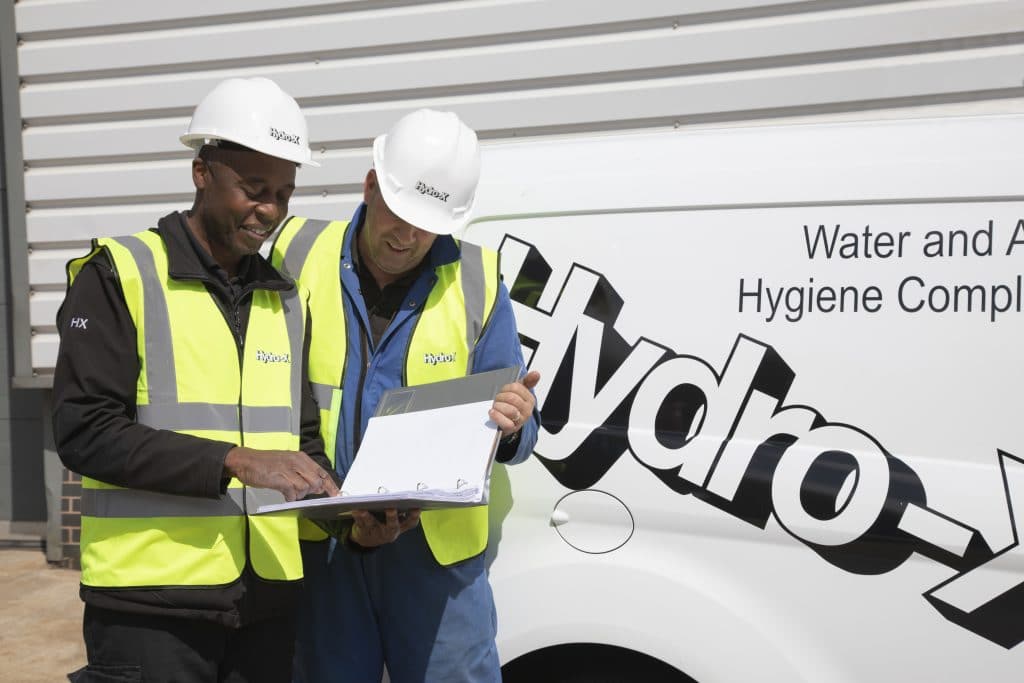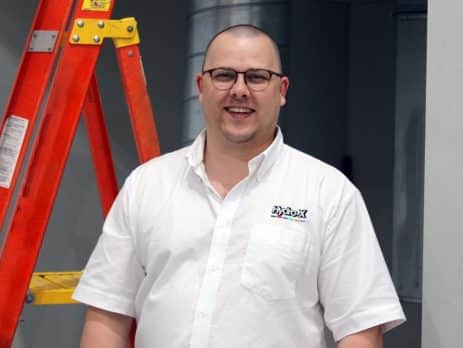Richard Gardner – Health, Safety & Compliance Trainer
Q. What is your background and which courses do you deliver?
A. I have worked in various roles throughout my career before joining the water industry in 2007. These roles include being an Installation Engineer in the IT sector and even working as a Bingo Caller in a past life. Initially, upon entering the water industry, I was involved in pre-commissioning flushing as part of my engineering role.
After two years, I moved over to water hygiene. I held the position of Water Hygiene Technician for almost six years doing tank cleans, TMV servicing, risk assessments, service delivery and even a bit of ductwork cleaning before joining SafeCare (then under clearwater) at the end of 2014.
Within SafeCare, I progressed from Environmental Services Consultant to Field Manager.
In 2021, a position opened up for a trainer in the WCS training team to provide contracted legionella training for WCS and their clients and I leapt at the chance to become a trainer.
In November 2022 we integrated with Hydro-X Training and I started delivering a wider range of courses. My specialities include water hygiene, Legionella awareness, risk assessment, TMV servicing and system and tank disinfection.
My past experience with ductwork cleaning (which included cleaning fire dampers) provided me with a basic foundation for delivering fire safety-related training. Currently, I teach courses on fire door inspection, fire damper testing, as well as water hygiene.
Q. What is your approach to training delivery and what makes Hydro-X Training different in the areas which you teach?
A. My approach to training is to deliver training that is interesting, engaging and suits the needs of the learner. I like to gain an understanding of how deep our learners’ existing knowledge is and guide them to a level of understanding that allows them to do their jobs in a safe and technically competent manner.
In terms of my delivery style, I like to bring an entertaining element to the learning environment, turning compliance guidance and legislation, which could be deemed as dry material, into storytelling. We get more from learning when we are interested and engaged with the material and if we are able to relate that information to real-world events.
I would say an area which differentiates us is that we implement a lot of new learning methods to reinforce the information that is digestible. We engage with question and answer sessions on more than one occasion, all of which relate back to the workbook which can be used to help with the open book end-of-course test. Our range of delivery options, flexibility, and practical facilities are also second to none.
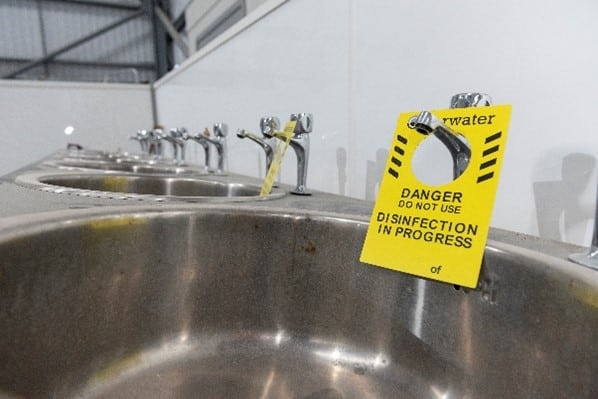
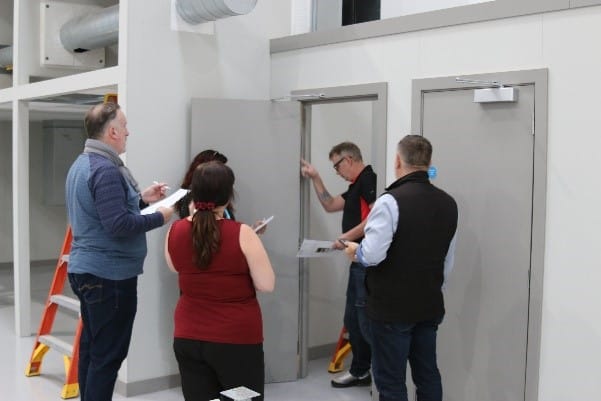
Q. How long have you been in the water industry, and what do you bring to the training environment?
A. I have enjoyed more than 16 years in the water industry, including 1.5 years within the training arena with WCS and Hydro-X. You name it, I’ve either serviced it, cleaned it or risk assessed it in the past 16 years.
I like to think that, along with the hands-on experience and the information gathered from the amazing trainers and mentors I have had over the years, I can bring into the classroom a wealth of knowledge and experience that can be useful to all our attendees.
I have personally struggled with dyslexia, which impacts my short- to long-term memory conversion. This is something that I have had to work around from school, working with many different learning methods to help myself retain the knowledge required to do my job. I believe this gives me an understanding of some learning difficulties that I can use to help develop clearer training materials. It also helps me to recognise and assist attendees who have similar learning conditions.
My goal is to make complex and dry information come alive by using storytelling as a powerful tool. By weaving narratives into the content, I enhance information retention among learners. I believe that storytelling is my favoured delivery method because it not only captures attention but also helps learners connect with the material on a personal level. Additionally, I utilise examples to illustrate how the information can be applied in real-life scenarios, making it easier for learners to grasp its relevance to their roles.
Q. With the vast majority of Hydro-X Training courses now available as Live Virtual Events what did you have to do to adapt your teaching style?
A. I have had to adjust my style in terms of addressing the audience and ensuring that all the blanks are filled in, covering all bases. Initially, I was nervous that the audience would be less engaged when getting used to the chat functionality over in-person courses, but I see now that it doesn’t need to be so limiting. I address this by having regular conversation flows with the audience in the chat function and question and answer sessions, which ensure that I still gain a full understanding of the individuals and their roles. The Live Virtual courses are fantastic for theory-based learning and have been a huge hit with our customers.
Q. You must see a vast range of delegates from many working backgrounds, what are the common and current challenges which our delegates and their businesses are facing in regards to water compliance?
A. Misinformation is the most common challenge which I see. Word of mouth can be quite toxic in the industry and as a trainer sometimes it can be quite tricky to unpick information that has been miscommunicated in the training environment. We do our best to provide a better understanding of regulations, guidance, along with help that is available to promote general good working practices.
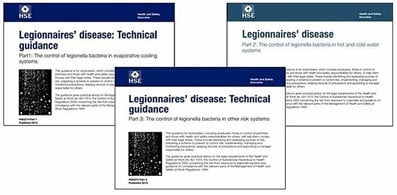
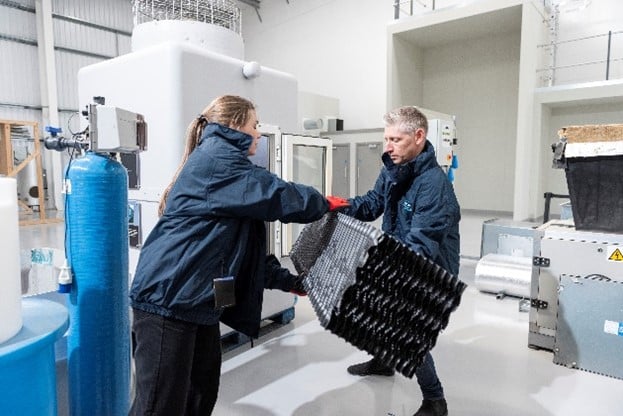
Q. What are the common skills/knowledge gaps which you see from those operating / managing teams in the water industry?
A. Again, I would say a basic understanding of what the guidance actually says. It is amazing how many learners have not previously read them even with years on the job. The tough one can be those who did the training years ago and haven’t refreshed that training, regular refresher training is important to maintain our understanding of the laws and the guidance that change regularly.
Q. What is your favourite course to teach and why?
A. The Legionella Responsible Person course I’d say is my favourite. The significant implications that it has for managers, CEOs, and other responsible personnel tends to make them more engaged with the material and encouraged to ask questions. The shock factor of the consequences they could face because of their responsibilities contributes to their heightened interest in the course materials.
Q. What is your favourite part of the job and what keeps you motivated?
A. This is definitely my favourite job to date! I really just love getting in front of the learners engaging on a 1-2-1 level. It is something very unique that no other job gives you! I love connecting with people.
Q. What tips would you give to newcomers to the water industry?
A. As I mentioned previously, read the guidance! Materials such as ACOP L8 and HSG274 will give you a better understanding before heading out into the water industry and you never know you might have a better grasp on it than those already in the industry.
I would also drop in, taking the time to understand the British Standards for the areas you are working in, it is really important. I know the guidance from the BSI costs a lot of money but they are really worth it, and if you are working for a company they may have already purchased one for their staff to read. These are very useful guides and come from experts who have worked in the industry and come across similar challenges you will face. They are designed to help you!
Q. What are your goals in your current role and outside of the workplace?
A. Every day is a school day, I always look to improve my understanding of the industries in which I train. I also want to become more involved in the industry in general and look at any available opportunities to become more involved, for example with the Legionella Control Association which I am a member of and other associations and committees. From a personal stand point I am looking to improve my investment portfolio and have been looking at residential or commercial property investing.
